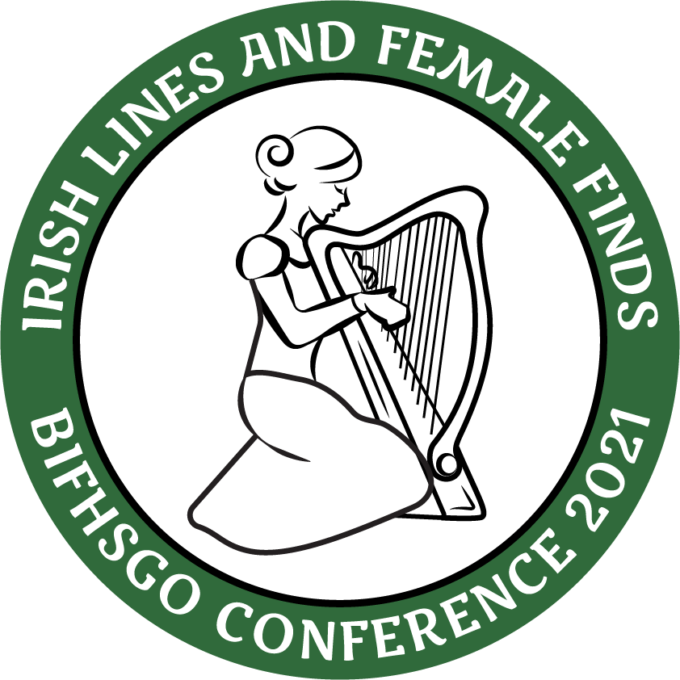 Aside from reading my popular Sunday Sundries column?
Aside from reading my popular Sunday Sundries column?
This Sunday, 19 September, is the first day of the BIFHSGO virtual conference with three presentations scheduled following the 12:30 welcome and introductory remarks. I’ve previously attended talks by all three and can recommend them all.
13:00 – 14:30 The Registry of Deeds, Dublin: Recording Irish Women Down the Generations (All levels) with Roz McCutcheon
Many researchers working on Irish records will be aware of the terrible losses caused by the destruction of the Public Records Office in Dublin in 1922. However, the Registry of Deeds was housed elsewhere and remained intact. In this talk, Roz will show you how to look for an ancestor in the registry and what sort of information can be gleaned. This is a huge, relatively untapped source, containing millions of names but very poorly indexed. The deeds, covering the whole of Ireland, were registered from 1708 onwards, and included all classes of people: from carpenters, servants and bricklayers to lords and ladies. The repository is full of references to family relationships, property handed down via the female line, marriage settlements, and even women who set up businesses and coped on their own. Roz will give examples of the many references to women and also describe the free Registry of Deeds Index that is slowly growing online, thanks to a small group of volunteers.
15:00 – 16:30 Targeting your Irish Ancestors with DNA (Intermediate) with Maurice Gleeson
This intermediate-level talk will cover how to select a particular Irish line for investigation and characterize that line’s brick wall as best one can (using naming convention and baptism records to identify possible parents and siblings, respectively). Maurice will then explore testing known cousins that triangulate on the brick wall and how a cluster of shared matches can be identified. As accessing family trees for each member of the cluster can be a challenge, he will offer various hints and tips for achieving this. He will also explain how to generate an autosomal DNA matrix, which helps you estimate the relationships between the cluster members, highlight close connections, and isolate specific ancestral lines down which the DNA has been passed. Ultimately, this exercise generates clues and leads that point you to a common surname, location or ancestor that you can focus on when studying the documentary records.
17:00 – 18:30 Finding Herstory in the Archives: Researching Female Ancestors (Intermediate) with Gena Philibert-Ortega
We are certainly lucky to live in a time where so many records of genealogical value can be found online. But not everything is online; nor will it ever be. In this presentation Gena will explore what items useful for researching female ancestors you can expect to find in an archive and what archives you should be researching in Canada and the UK.
It’s not too late to register if you’ve been unable to commit until now.
https://www.bifhsgo.ca/2021-conference

